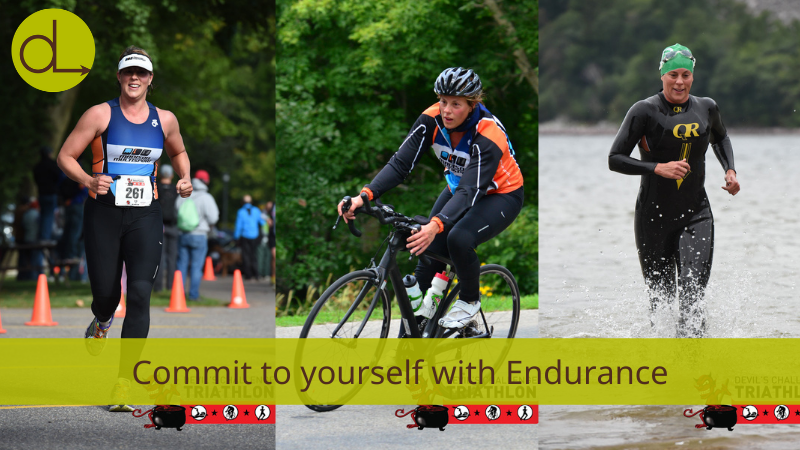Doing an Ironman (2.4 mile swim, 112 mile bike, and 26.2 mile run) is considered one of the ultimate endurance events. But I can tell you from personal experience that completing it is about so much more than swimming, biking and running. The Ironman is a mental game, one that tests one’s ability to not quit.
I trained six days per week for 55 weeks to prepare for the Great Floridian. Snow storm? Hot and humid? Christmas? Didn’t matter. I was training. My coach had me build my mileage and intensity for three weeks, and then back off for a week of lighter activity and recovery.
I also did brick workouts—and sometimes double bricks—which is training two or more disciplines one after. Like a long bike followed immediately by a run. It’s called brick because your legs literally feel like bricks when you’re done (and often during). Others say it’s because you’re stacking two disciplines on top of each other, like bricks.
As you can see, training requires commitment and discipline.
Now here’s a basic truth of any endurance event, whether a marathon or Ironman. It always feels like work. There’s a reason people are out of breath and sometimes even collapse at the finish line. It’s hard. You use every bit of energy you have. But thanks to all the training you do before the race, you’re able to reach the finish line. And the route feels easier because you’ve prepared for months. That doesn’t mean it is easy, but certainly a bazillion times easier than if you hadn’t trained for it.
The Same is True for Any Goal
This same truth applies to any goal you set in life or business. It’s going to take work. It’s going to require effort. If your goal doesn’t feel hard, or if you’re perfect on the first try, it may be that it isn’t challenging enough for you.
And because goals feel like work, of course you’re going to want to quit. It’s normal to think:
- I can’t do this anymore.
- I have no idea what I’m doing.
- I don’t have the energy for this.
These thoughts are normal. However, when you’re Thoughtfully Fit, you can recognize these thoughts for what they are… normal thoughts after working really hard. It’s also important to recognize if these thoughts start sabotaging you.
- I can’t do this anymore. This is too much and I’m tired. I’m giving up.
- I have no idea what I’m doing. Everyone else is doing so much better than me. I better quit so I don’t look foolish.
- I don’t have the energy for this. This is too hard. It’s easier to do what I’ve always done.
These thoughts are understandable. That’s where training comes in—for your mind.
You can train to recognize these thoughts and not let them sabotage your efforts toward your goals. Let me say that again. Just like you can train for events that require physical exertion, you can also train for events that require mental exertion. And when you do, you improve your chances of success immensely.
Anticipate the Hurdles
After 23 seasons of doing triathlons, I know I’ll get blisters, muscle cramps, and dizziness if I don’t wear the right shoes, hydrate properly, and get the right nutrition before the race. It doesn’t matter how badly I want to perform well. These challenges will happen. But because of my training, I know what I can do to prevent those hurdles from getting in my way.
Additionally, I know I’ll have moments where I will want to quit. No amount of training will eliminate that thought from popping in my head. Especially when it gets hard. But my training helps me to recognize those thoughts when they come up. I remind myself that it’s normal to want to stop. I take a break if I need to, but then I keep going.
Whatever goal you’re working on, anticipating the hurdles should be a critical part of your plan. Hurdles are not a sign of failure. They’re normal. So identify them. Figure out what you need to do when (not if) those hurdles pop up—so you can continue moving forward, instead of quitting.
One-minute Core Workout

- Pause. If you’re working on a goal and find yourself wanting to quit, hit the Pause button instead.
- Think. Ask yourself thoughtful questions. What feels hard about this? How do I want to define success today? What other obstacles can I anticipate and plan for?
- Act. Identify one small step that’ll allow you to continue to move forward. And give yourself credit for taking on a hard goal!
The pride of completing the Ironman triathlon is not just about race day. It’s about all of the preparation and training that happens before you even get to the start line. Tackle your goal the same way and make the journey to your finish line more thoughtful (and successful!).
I’ll be here cheering for you every step of the way.


